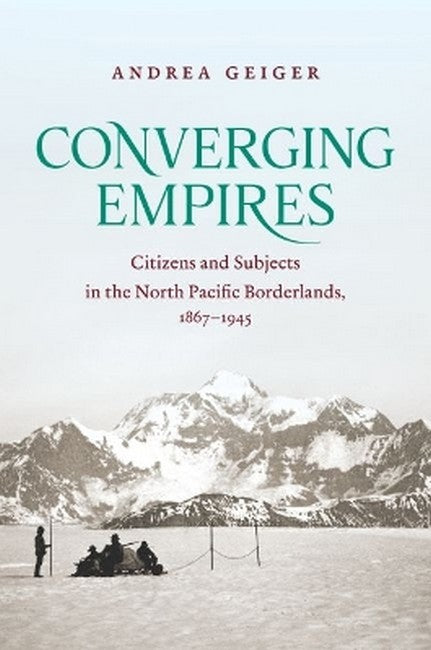Andrea Geiger is author of the award-winning Subverting Exclusion: Transpacific Encounters with Race, Caste, and Borders, 1885-1928.
Request Academic Copy
Please copy the ISBN for submitting review copy form
Description
"Converging Empires destabilizes land-centric modes of borderland studies and instead considers dynamic maritime spaces and waterways of the Pacific Ocean . . . . a multifaceted and complicated story of historical encounter, economic migration, settler colonialism, and wartime exclusion."--Canadian Geographies "Converging Empires makes clear the ways Indigenous peoples and others on the fringe of the dominant Euro-American societies shaped, and complicated, the relations between the United States and Great Britain and Canada . . . . There is much to learn in this valuable work."--Diplomatic History "A penetrating story . . . . As a history, Geiger's work is equally complex, categorical, and deeply atmospheric; she does her subjects historical justice."--The Western Historical Quarterly "Fully readable, with carefully chosen photographs, Converging Empires is a significant addition to the growing postcolonial study of Alaska and western Canada. It should be essential reading for scholars and students considering the historical agency of the Indigenous people there, the mixed-heritage legacy of settlement, and the environmental impact of development."--Journal of American History "Geiger's deep research, crisp analysis of law and politics across multiple borders, and her rigorous attention to how individual lives are shaped by structures of power make this book required reading for borderlands scholars as well as for historians of British Columbia, Alaska, the Pacific Northwest, and certainly of immigration and Asian North America."--BC Studies: The British Columbian Quarterly "Impressive . . . . Despite covering a large geography and a wide array of nations, Converging Empires remains accessible. The writing is clean and clear . . . . [the book] does a wonderful job showcasing how disparate stories - Indigenous labour and resistance, Japanese immigration, and colonial expansion - intersected to create a new social world along the Pacific coast."--Canadian Historical Review "In this extensively researched work, Andrea Geiger investigates Indigenous and migrant settlement along the Pacific Northwest Coast from 1867 to the eve of World War II, examining the social and economic impact each group had on the others, and on the political boundaries competing nations sought to impose on the region. . . . Converging Empires is a significant addition to the growing postcolonial study of Alaska and western Canada. It should be essential reading for scholars and students." --Journal of American History "In total, as a remarkable contribution to the field of Pacific history and the US West, Geiger's thoughtful analysis of legal, social, borderlands, migration labor, war, and political history uncovers Western settler-colonial settlement of the North Pacific, Asian migration, racialization of Asian bodies, and Indigenous land rights."--Journal of Arizona History "Masterful . . . . compelling . . . . audacious . . . . [Geiger] writes with clarity, never glossing over the unique peculiarities of each situation but never getting lost in the weeds of what could be inscrutable. She not only reveals a host of new (to most) histories but makes them fully legible . . . . Converging Empires will enlighten, confound, and inspire in the most productive of ways--American Historical Review "Meticulous analysis . . . . Geiger's deep research, crisp analysis of law and politics across multiple borders, and her rigorous attention to how individual lives are shaped by structures of power make this book required reading."--BC Studies

